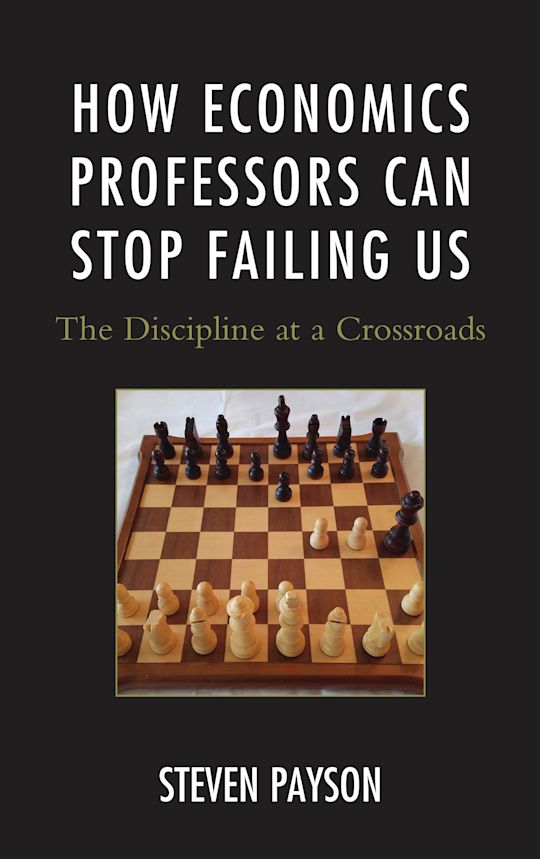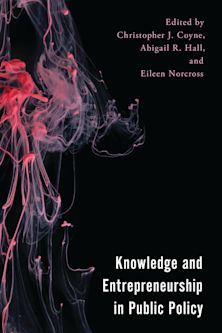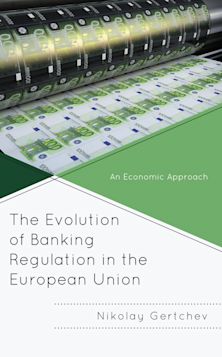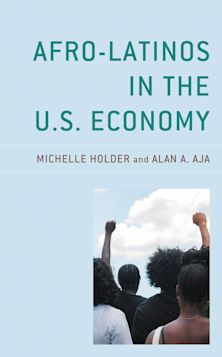- Home
- ACADEMIC
- Economics
- Introductory & General Economics
- How Economics Professors Can Stop Failing Us
This product is usually dispatched within 3 days
- Delivery and returns info
-
Free CA delivery on orders $40 or over
You must sign in to add this item to your wishlist. Please sign in or create an account
Description
This book provides an eye-opening exposé on economics professors that will surely shock anyone who is not familiar with the topic, and even some of those who are familiar with it. It is critical of the behavior of economics professors, but is not critical of the field of economics itself. In fact, the book argues that it is essential for economics professors to improve in the work they perform, precisely because of the vital importance of their field.
Other books that criticize economics professors typically present complex arguments that interest only the most advanced scholars. However, this book is completely different. It is written to be understandable to anyone who has with an interest in economics, regardless of their background. At the same time, the book does include the most relevant scholarly arguments—it just presents them in a manner that allows anyone to understand them.
Also unlike other books on economics, How Economics Professors Can Stop Failing Us is written in the context of a genuine exposé. As such, itventures “backstage” behind the “show business” that has dominated the profession, revealing the profession’s deep, dark, (and at times rather ugly) secrets. The book is able to do this by having an author who has experienced first- hand, studied, and written on this topic area for over three decades, who has organized training seminars on it, and who has served for over a decade as the Executive Director of the Association for Integrity and Responsible Leadership in Economics.
While exposing the profession’s shameful problems, the book also offers great hope in providing realistic solutions to them. One of the main solutions it proposes is for economics professors who are now failing us to follow, and learn from, those other professors who are not failing us—who have, instead, admirably upheld the principles of professional ethics and scientific integrity. In this sense, How Economics Professors Can Stop Failing Us offers the most hope, and perhaps the only hope, for economics professors to improve, and to play the responsible role that their students, their employers, and society overall, expects of them.
Table of Contents
Acknowledgments
Chapter 1: No, This Is Not a Joke
Chapter 2: Why Does Theoretical Economic Literature Exist?
Chapter 3: What Allows “Literature-Only” Theoretical Discourse to Exist?
Chapter 4: How the Game is Played
Chapter 5: The Quest for Honest Truth in Economic Science
Chapter 6: The Effects of Electronic Files, Citation Counts, and Bibliometric Databases
Chapter 7: Scholarship, Though Beautiful, Cannot Save the Academic Economics Profession
Chapter 8: Academic Economics at Its Dumbest and Ugliest
Chapter 9: Violations of Professional Ethics, Whether by Ignorance or Intent
Chapter 10: Product Evolution and a Personal Story
Chapter 11: Conclusion: What Must Be Done in Academic Economics
Bibliography
About the Author
Product details
| Published | Aug 15 2018 |
|---|---|
| Format | Paperback |
| Edition | 1st |
| Extent | 372 |
| ISBN | 9780739198353 |
| Imprint | Lexington Books |
| Illustrations | 15 BW Illustrations, 6 Tables |
| Dimensions | 221 x 151 mm |
| Publisher | Bloomsbury Publishing |
About the contributors
Reviews
-
Few people working in university economics departments over the past few years could be unaware of the rising tide of criticism about the profession. From the collective failure of economists to predict the GFC; complaints about the narrowness of mainstream curriculum and poor teaching, to the lack of ethical behaviour among some individual economists, the discipline has been described as “in crisis.” Within the towers of academia, however, few economists seem to be listening, or even concerned with, the increased level of attacks. It is this lack of response that motivates Steven Payson’s recent book.... This book adds to the growing calls for change in the way the economics profession operates.
International Review of Economics Education
-
It is clear that it is time to change economics, and Payson is yet one more voice that (hopefully) will make such change inevitable.
The London School of Economics and Political Science Review of Books
-
Thankfully, no knowledge of advanced mathematics is required to read Payson’s book or to understand his examples, which he carefully and artfully explains with words and pictures.
Financial History
-
The book is written in a strong tone and the straightforward approach of the author is certainly not commonly seen. . . . this was an interesting read, and should provide fodder for reflection and discourse for a member of the academia.
Journal of Higher Education Policy and Management
-
Steven Payson, the author of this provocatively titled book, is a former career federal government economist who has the temerity to argue that economics could be a useful science if mainstream academic economist theoreticians would simply adopt and employ the scientific method in a serious effort to provide an understanding of the world in which we live. Instead, he convincingly argues, the culture of academic economists encourages and rewards a mathematical modeling onanism that is not only not “seminal,” but is instead practically barren of any contributions to that understanding. . . . There is much anger and outrage expressed by the author in the course of his argument, and yet the book is not just a polemic. If Payson’s critique is on the mark, the question of what to do is certainly an important one.
Quarterly Journal Of Austrian Economics
-
Payson’s career has given him a rare perspective on economics in both practical policy use and in academia. He uses the fundamental insight of economics itself, that of the impact of incentives on behavior, to build a powerful indictment of the academic economics profession in the United States. Economics occupies a dominant position in public policy making, and this book will be an eye-opener for the general public.
Paul Ormerod, Volterra Partners


































